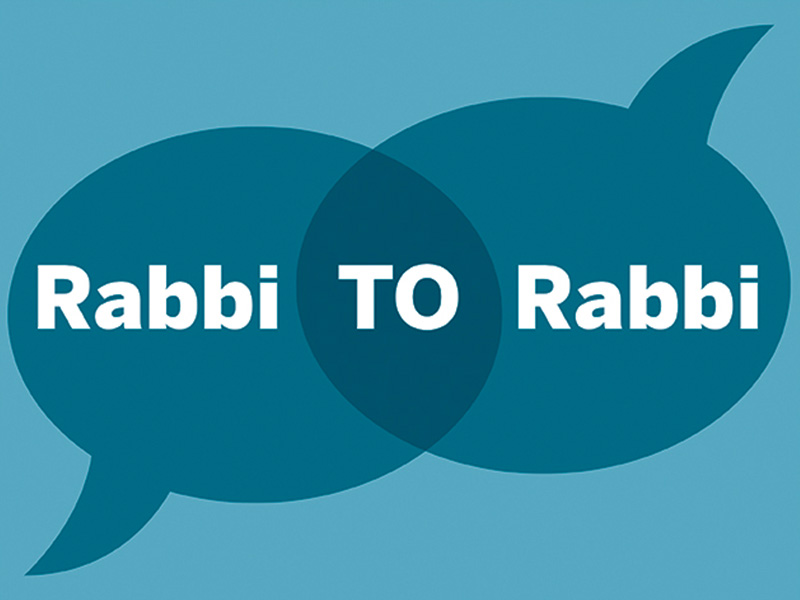Should Jews seek to influence societal values based on our teachings, or are we a minority seeking to preserve our freedom and be exempt from laws that infringe on our beliefs?
Rabbi Adam Cutler
Beth Tzedec Congregation, Toronto
Rabbi Adam Scheier
Congregation Shaar Hashomayim, Montreal
Rabbi Cutler: When a congregant asks a formal she’eilah (question), I am happy to provide a rabbinic tshuvah (response). When however I am asked to weigh in on issues of public concern, especially if my voice is intended to be public, I am less at ease. When it comes to public policy, rabbis must not only be cautious with what they say, but be able to justify saying anything at all.
Of recent note is the conversation around physician assisted dying. Certainly, it is in the appropriate religious realm for rabbis to advise Jews as to the permissibility of Jewish patients or doctors partaking in this course of action. It is also, in my opinion, absolutely acceptable for rabbis to be at the forefront of voices calling for significant safeguards in order to protect society’s most vulnerable.
However, in a situation of a non-Jewish terminally ill individual in chronic intolerable pain who has requested of his willing non-Jewish doctor to assist her in dying, one may reasonably ask why should there be a Jewish voice in deciding whether or not the physician may comply? How is physician assisted dying different than other issues, where we reject religious interference?
Rabbi Scheier: Your question is a profound one. It speaks to how we, as Jews, perceive our place in society: are we a guiding force of morality and ethics that seeks to influence societal values based on our teachings, or are we simply a minority seeking to preserve our freedom and therefore be exempt from legislation that infringes on our religious beliefs?
What is our community’s threshold for when to speak up and when to remain silent? To this question, I’m not sure there’s a concrete answer, as lobbying is often an art, not a science. Perhaps, in that physician assisted dying is literally a question of life and death, we have met our parameters for intervention. At the very least, we reaffirm the importance to voice values that we see as central to sustaining a moral society.
Where do you see the line drawn? Should we differentiate between religious advocacy on the issue of same-sex marriages and the issue of physician assisted dying?
Rabbi Cutler: While I am generally leery of slippery slope arguments, I believe that the likelihood of physician assisted dying leading to the cheapening of the value of human life is too great to merit its legalization. A world that sees human life as nothing but a biological fact is a world that too easily dismisses those who cannot materially contribute to the collective or who are regarded as too different or too much of a burden. It is in such a world that atrocities become more easily achieved.
For me, a critical factor in deciding whether it is appropriate to insert a Jewish voice into a public conversation is the potential result of silence. Would failure to speak result in lost lives? Would silence lead to the deaths of society’s most vulnerable? If the answer is yes, then that is reason enough to speak out.
Rabbi Scheier: It seems that my line of demarcation might be less utilitarian than yours. For me, a dramatic and definite outcome – even if derived through the “slippery slope” – is not the only prerequisite for Jewish values being voiced in a secular-society debate. Rather, Jewish thought has something to contribute to society at large, regardless of the case’s specific ramifications.
While I recoil at the idea of one religion’s system of values determining policy for society at large, I do believe that values-based morality should inform both major and minor issues that any society faces. In Jewish law and the Torah, we have a foundation for moral society. It would be a shame to silence these values simply because they emerge from a religious tradition.
Perhaps at the end of the day, what motivates this conversation is the desire to live in a values-based society, in which our leaders make decisions based not on whim or opinion, but on a value system that is tried and true. For us, the Torah provides the backbone and structure to how we process life and its challenges. The struggle, perhaps, of living in a multicultural, secular society, is to construct policies that neither completely mimic nor fully reject the various traditional value systems present in that society.
